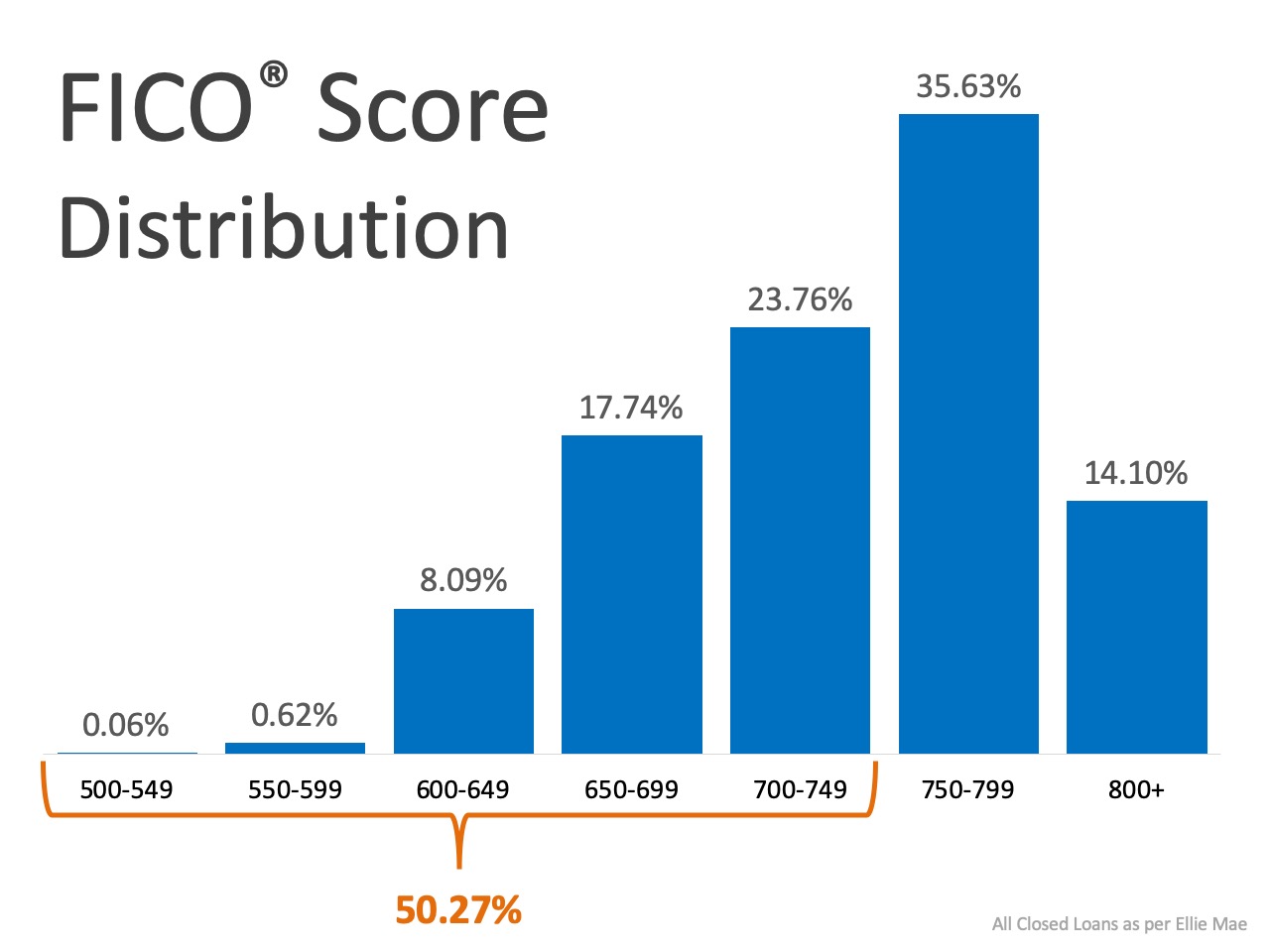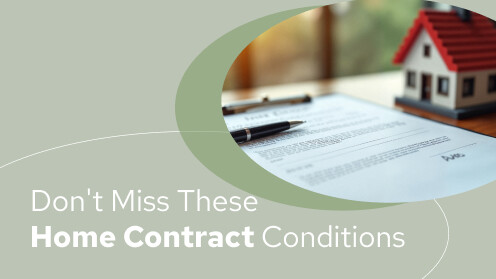What FICO® Score Do You Need to Qualify for a Mortgage?

While a recent announcement from CNBC shares that the average national FICO® score has reached an all-time high of 706, the good news for potential buyers is that you don’t need a score that high to qualify for a mortgage. Let’s unpack the credit score myth so you can to become a homeowner sooner than you may think.
With today’s low interest rates, many believe now is a great time to buy – and rightfully so! Fannie Mae recently noted that 58% of Americans surveyed say it is a good time to buy. Similarly, the Q3 2019 HOME Survey by the National Association of Realtors said 63% of people believe now is a good time to buy a home. Unfortunately, fear and misinformation often hold qualified and motivated buyers back from taking the leap into homeownership.
According to the same CNBC article,
“For the first time, the average national credit score has reached 706, according to FICO®, the developer of one of the most commonly used scores by lenders.”
This is great news, as it means Americans are improving their credit scores and building toward a stronger financial future, especially after the market tumbled during the previous decade. With today’s strong economy and increasing wages, many Americans have had the opportunity to improve their credit over the past few years, driving this national average up.
Since Americans with stronger credit are now entering the housing market, we are seeing an increase in the FICO® Score Distribution of Closed Loans (see graph below): But hang on – don’t forget that this does not mean you need a FICO® score over 700 to qualify for a mortgage. Here’s what Experian, the global leader in consumer and business credit reporting, says:
But hang on – don’t forget that this does not mean you need a FICO® score over 700 to qualify for a mortgage. Here’s what Experian, the global leader in consumer and business credit reporting, says:
FHA Loan: “FHA loans are ideal for those who have less-than-perfect credit and may not be able to qualify for a conventional mortgage loan. The size of your required down payment for an FHA loan depends on the state of your credit score: If your credit score is between 500 and 579, you must put 10% down. If your credit score is 580 or above, you can put as little as 3.5% down (but you can put down more if you want to).”
Conventional Loan: “It’s possible to get approved for a conforming conventional loan with a credit score as low as 620, although some lenders may look for a score of 660 or better.”
USDA Loan: “While the USDA doesn’t have a set credit score requirement, most lenders offering USDA-guaranteed mortgages require a score of at least 640.”
VA Loan: “As with income levels, lenders set their own minimum credit requirements for VA loan borrowers. Lenders are likely to check credit scores as part of their screening process, and most will set a minimum score, or cutoff, that loan applicants must exceed to be considered.”
Bottom Line
As you can see, plenty of loans are granted to buyers with a FICO® score that is lower than the national average. If you’d like to understand the next steps to take when determining your credit score, let’s get together so you can learn more.
Utah House Committee Votes Against Bills That Make Housing More Affordable
A Utah House committee did not vote on two housing bills, HB 88 and HB 90, aimed at addressing the state's housing shortage, despite support from the governor's office. HB 88 would allow detached accessory dwelling units in urban residential zones, while HB...

Ready to Buy a Home in 2025? Get the Inside Scoop
Start preparing finances early: Ensure credit is good, calculate affordability, and get ready to make a competitive offer.Current market improvements: 2025 offers better opportunities for buyers after high prices and limited options in 2024.

Cut Your Insurance Premiums: Simple Savings Tips
Maintain a Good Credit Rating: Strong credit scores often lead to lower premiums for auto and homeowner insurance.Drive Safely: A clean driving record and good grades for students can significantly reduce insurance costs.
Utah lawmakers say no to ‘preemption,’ halt 2 housing bills aimed at allowing smaller homes
Utah lawmakers are facing challenges in addressing the housing affordability crisis, with two bills aimed at allowing smaller homes failing to progress in the legislative session. Rep. Ray Ward's proposals, which included permitting accessory dwelling units and...

Tips for Finding Bargain Houses in 2025
Start house hunting in January to benefit from lower prices and reduced buyer competition. Hire a local Real Estate agent with expertise in undervalued properties and market trends.
A Utah bill requiring 60 days notice to raise rent fails
A Utah bill requiring landlords to provide two months' notice before raising rent has been halted for the third consecutive year. The House Business, Labor, and Commerce Committee rejected HB182, which aimed to give tenants more security. The Utah Rental Housing...
Surprising Trend Pops Up in This State To Help Buyers Nab Their First Homes
A new housing trend in Utah is emerging, offering affordable options amid skyrocketing home prices, with the median list price in Salt Lake City at $550,000. Local employers are struggling to find workers due to high property costs. Homebuilder BoxHouse in St. George...

Get Your House Market-Ready
Consult a REALTOR®: A local agent helps price your home correctly and attract potential buyers. Complete Repairs: Fix any outstanding issues, like leaky faucets or worn-out flooring, for a polished look.

Conditions That Make or Break Your Home Contract
Specify mortgage details, interest rates, and loan types to avoid issues with earnest money deposits. Want seller assistance with closing costs? You must ask for it in your offer!

Does Home Insurance Shield Hurricane Damage?
Dwelling and personal property coverage repair your home and replace belongings, subject to policy limits and deductibles. Hurricane deductibles differ: Typically 1–5% of dwelling coverage, significantly impacting your out-of-pocket costs.
